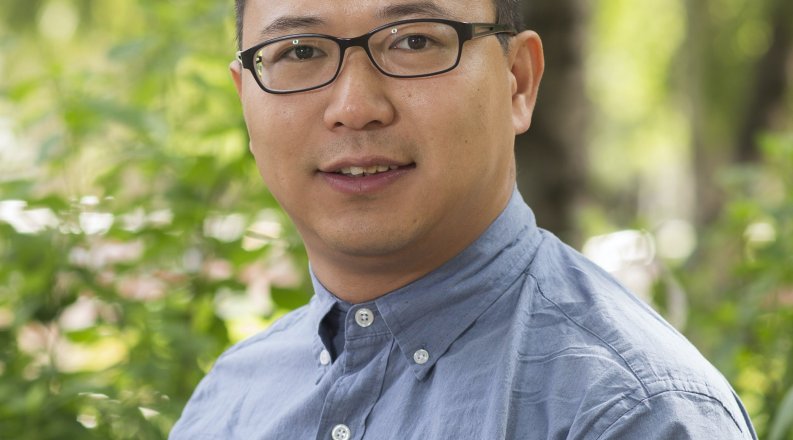Friday, December 3, 3:00PM
All lectures to be held at 3:00pm on Fridays online at ODU DL: ECE 731 831 Grad Seminar
For more information, contact Dr. Chung Hao Chen at (757) 683-3475 or email cxchen@odu.edu.
Seminar Topic:
Fair Resource Allocation & Learning: Combinational Sleeping Bandits with Fairness Constraints
Abstract:
The multi-armed bandit (MAB) model has been widely adopted for studying many practical optimization problems (network resource allocation, ad placement, crowdsourcing, etc.) with unknown parameters. The goal of the player (i.e., the decision maker) here is to maximize the cumulative reward in the face of uncertainty. However, the basic MAB model neglects several important factors of the system in many real-world applications, where multiple arms (i.e., actions) can be simultaneously played and an arm could sometimes be "sleeping" (i.e., unavailable). Besides reward maximization, ensuring fairness is also a key design concern in practice. To that end, in this talk we will first introduce a new Combinatorial Sleeping MAB model with Fairness constraints, called CSMAB-F, aiming to address the aforementioned crucial modeling issues. The objective is now to maximize the reward while satisfying the fairness requirement of a minimum selection fraction for each individual arm. To tackle this new problem, we extend an online learning algorithm, called Upper Confidence Bound (UCB), to deal with a critical tradeoff between exploitation and exploration and employ the virtual queue technique to properly handle the fairness constraints. By carefully integrating these two techniques, we develop a new algorithm, called Learning with Fairness Guarantee (LFG), for the CSMAB-F problem. Further, we rigorously prove the feasibility-optimality and a regret upper bound of LFG. Finally, we will present simulation results that corroborate the effectiveness of the proposed algorithm. Interestingly, the simulation results reveal an important tradeoff between the regret and the speed of convergence to a point satisfying the fairness constraints.
Speaker:
Dr. Bo Ji, Associate Professor in the Department of Computer Science at Virginia Tech University
Bio:
Dr. Bo Ji received his B.E. and M.E. degrees in Information Science and Electronic Engineering from Zhejiang University, Hangzhou, China, in 2004 and 2006, respectively, and his Ph.D. degree in Electrical and Computer Engineering from The Ohio State University, Columbus, OH, USA, in 2012. Dr. Ji is an Associate Professor in the Department of Computer Science at Virginia Tech, Blacksburg, VA, USA. Prior to joining Virginia Tech, he was an Associate Professor in the Department of Computer and Information Sciences and a faculty member of the Center for Networked Computing at Temple University, where he was an Assistant Professor from July 2014 to June 2020. He was also a Senior Member of the Technical Staff with AT&T Labs, San Ramon, CA, from January 2013 to June 2014. His research interests are in the modeling, analysis, control, optimization, and learning of computer and network systems, such as wired and wireless networks, large-scale IoT systems, high performance computing systems and data centers, and cyber-physical systems. He has been the general co-chair of WiOpt 2021 and the technical program co-chair of ITC 2021, and he has also served on the editorial boards of various IEEE/ACM journals (IEEE/ACM Transactions on Networking, IEEE Transactions on Network Science and Engineering, IEEE Internet of Things Journal, and IEEE Open Journal of the Communications Society). Dr. Ji is a senior member of the IEEE and a member of the ACM. He is a National Science Foundation (NSF) CAREER awardee (2017) and an NSF CISE Research Initiation Initiative (CRII) awardee (2017). He is also a recipient of the IEEE INFOCOM 2019 Best Paper Award.



